Music
Our school’s vision centers upon the relationship between music education and the immersion process of learning a second language. They are partners in full education. Though the national trend is to reduce this education component, we believe that a strong music art curriculum lays the foundation for strong mathematical and scientific intelligence. All grade levels at The French American School of Tampa Bay are immersed in our Music Arts Program, which includes Music Together and an opportunity for private Suzuki lessons.
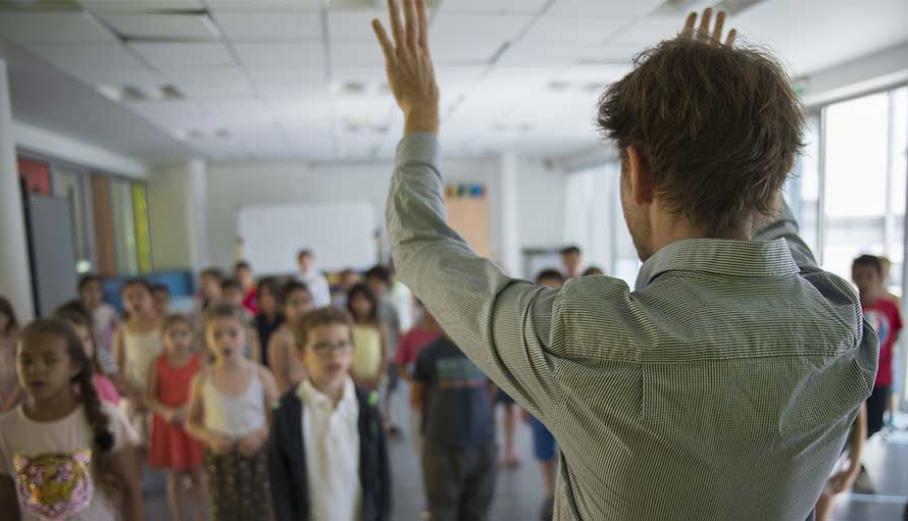
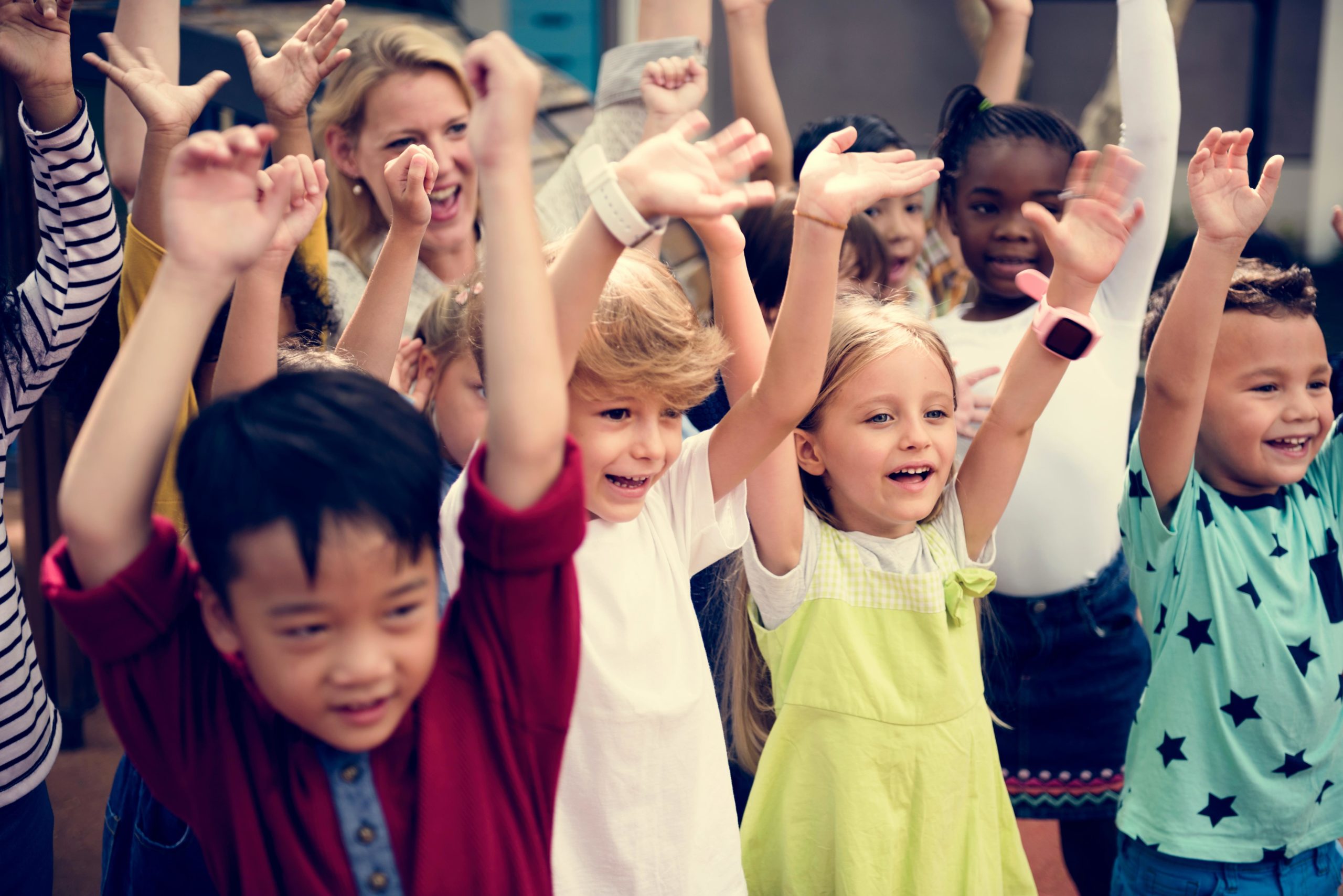
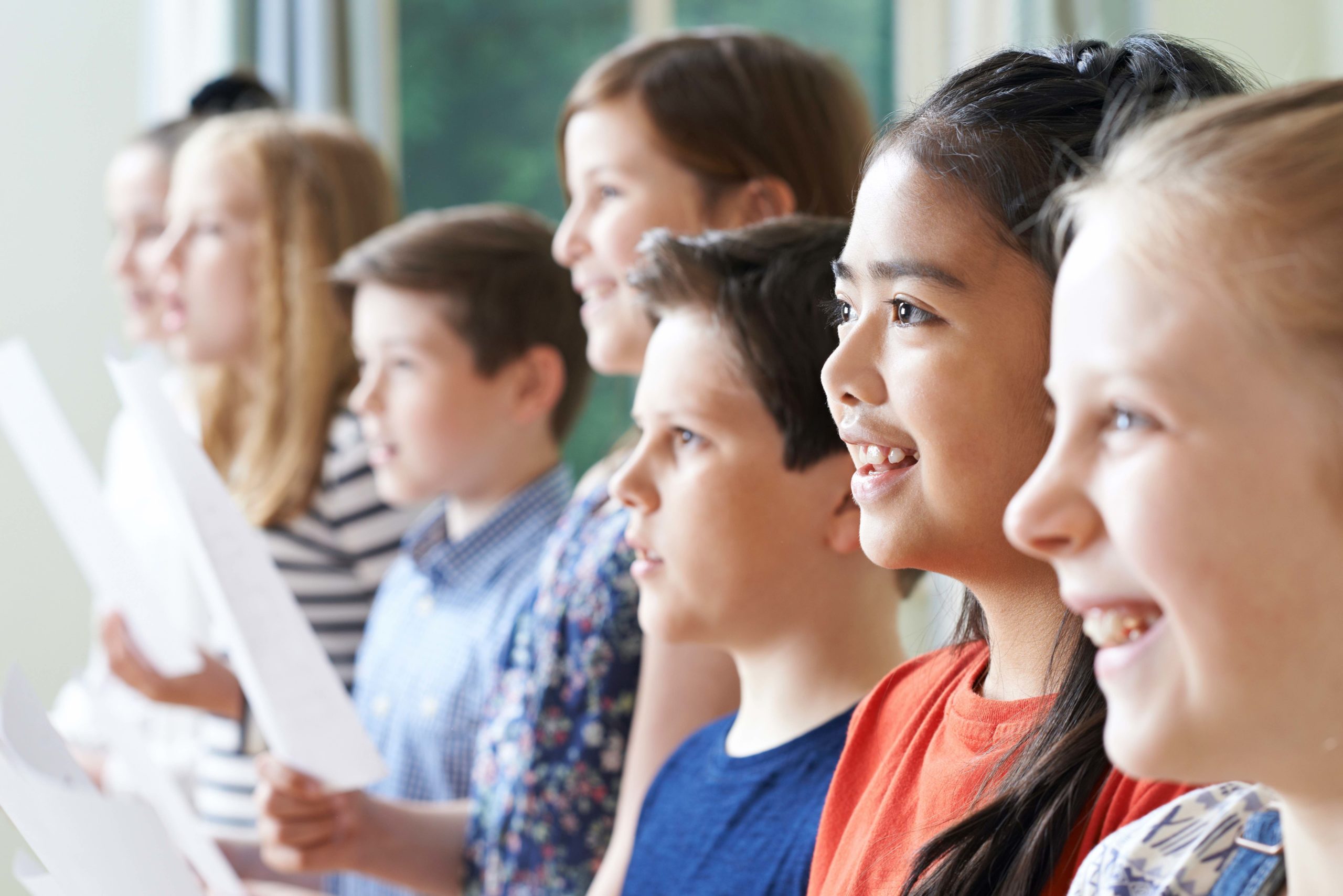
Chorus
Singing is an artistic activity that awakens children to the world of music and the pleasure of learning in a group. At all levels of schooling, children can join the school Chorus to learn to sing in class, discover a new repertoire, and perform on stage. In addition, they practice how to keep a steady beat and execute simple rhythmic patterns on a percussion instrument. In the chorus, they focus on developing good pitch and breathing skills in chorus class.
Chorus allows :
- Gain self-confidence;
- Learn to perform in public;
- To develop musical culture and artistic sensitivity through practice.
- Chorus is a collective and unifying activity.
A wide variety of music allows students to discover different styles of music: classical, jazz, variety.
The teachers adjust their repertoire and teaching aids to the level of the students. In kindergarten, children begin by learning nursery rhymes and short songs with simple melodies. They encounter poetry and explore their vocal potential in a fun way.
Later on, the songs chosen are longer and more melodically rich. Until cycle three, that is, until CM1, the songs proposed are in one voice, more rarely in canon. Thereafter, the students are gradually introduced to the pleasure of singing in several voices.
The concert is an important moment that highlights the work accomplished and gives meaning to the chorus project. In addition, the chorus animates the life of the school throughout the year, for example during the first day of school, the music festival, official ceremonies, or end-of-year festivities. Students can also participate in meetings or festivals where young singers perform in front of each other and discover new repertoires, interpretation, and staging ideas...
Tips for parents:
- At home, in the car, your children will certainly want to repeat the songs they learned!
- Make sure they understand the words to the song you are listening to or humming.
- Share with them the songs that rocked your childhood and adolescence.
- Make playlists together or play the game of guessing the title and name of the author or composer.
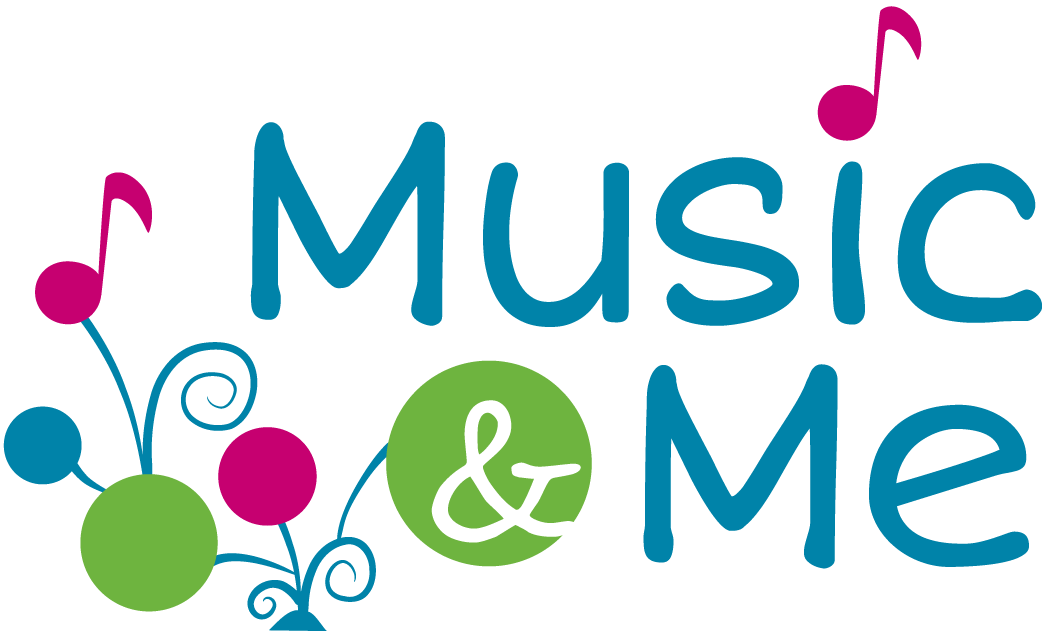
Music Together Program offered by Music and Me
Local early childhood music specialist Music & Me, LLC, offers all FASTB students the award-winning Music Together program. Since 1987, Music Together has introduced millions of children, parents, and teachers worldwide to the joys of music-making and the powerful benefits of having music in their lives. Music Together nurtures each child’s natural musicality in a playful, musically rich learning environment. The research-based music classes are designed to be non-formal and non-performance oriented, so your child can learn at their own pace in a developmentally appropriate way. In addition, because musical interaction is important for a child's musical development at home, each family receives supportive take-home materials in the form of an illustrated songbook and recording of the music used throughout the semester.
SUZUKI Guitar with Alex Gammon
Alex got his first guitar at age 13 just for show. Still, when his family thrust him into private lessons with Sarasota guitarist Jami Gee, he centered his life around the instrument, learning jazz, classical and progressive rock pieces. As a teen, Alex played guitar in the Fogt’s Junior All-Star Band, which performed at Sarasota retirement homes and blues festivals, covering old swing hits and dancey jazz tunes. After studying Childhood Anthropology at Florida State and earning his B.A. in International Affairs and English, Alex was intrigued by early childhood development, which led him to the Music Together program. Blending his passion for music and early childhood development, Alex took and passed the Music Together teacher training in the Fall of 2018 and began working with FASTB students in December 2018 – a huge hit with all of our students!
Benefits of SUZUKI Guitar:
- You can have a lot of fun making music.
- Create a more positive self-image.
- Develop concentration and focus.
- Create a culture of self-discipline
- Study skills and academic performance will improve as a result of this.
- Artistic expression can be a healthy and creative outlet.
- Cultivate a love of learning
- Increase mutual respect and understanding between parent and child
- You'll gain a greater understanding of cultural diversity through exposure to world music
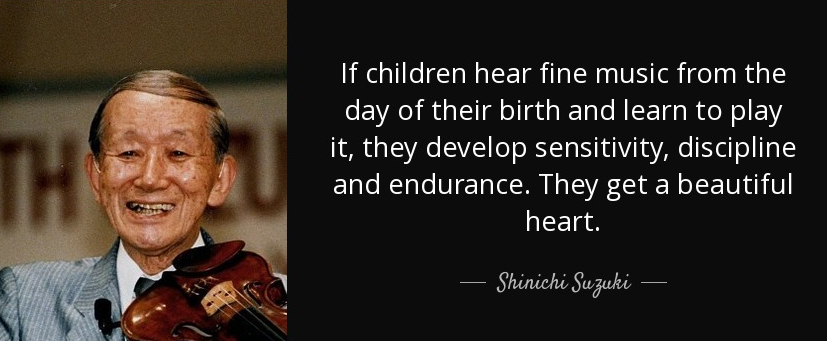
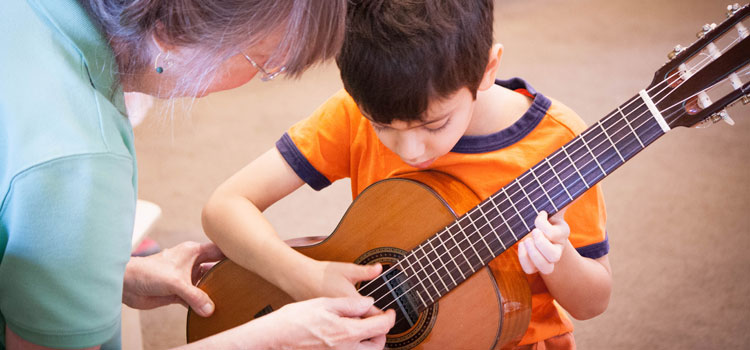
Dr. Suzuki's "Mother Tongue Approach"
Dr. Suzuki's success is largely due to his "Mother Tongue" approach to music education. Early in his career, he discovered that young children might learn to play beautiful music in the same way they can learn to speak their own language. He was dissatisfied with the notion that certain children are born gifted and instead discovered that any child might attain a high degree of ability with the right instruction and environment. Thus, talent is something that can be learned rather than something that we are born with.
The development of a child's talent begins at a young age. It requires that you listen to the music, practice with a parent, and perform whenever possible. Even before the lessons begin, the recorded repertoire is played for the youngster several times throughout the day. This mode of absorption substantially aids the educational process. Reading notes on the instrument is deferred until the fundamentals of playing have been understood.
Dr. Suzuki's method relies heavily on parental participation. Before the child begins classes, the parent is termed the "Home Teacher" and is taught the fundamentals of the instrument. The parent pays close attention to the child's education to better assist at home. During the home lesson, a friendly and encouraging environment is highly promoted. Correct posture and proper arm, hand, and finger positioning are constantly emphasized at home and throughout the lesson. In addition, Tonalization, or the creation of a lovely tone, is constantly emphasized.
A young performer has a plethora of options available to them. Small home concerts might act as a motivator to finish a piece of music. Weekly or bi-monthly group lessons are held in addition to weekly private courses. In these workshops, students perform for each other or play their pieces together in a mutually encouraging environment. Students can get motivation from group classes by watching their colleagues execute more advanced repertoire. In addition, students can discuss their common musical experiences in a social context during the lessons. Children are also welcome to observe other pupils' lessons. This can open up new avenues for understanding the instrument and the song.
The music is pre-recorded and meticulously sequenced. The pupil is prepared for the following item with each piece. Rather than a series of dry exercises or produced etudes, the kid is given literature that is not only of great quality but also delightful to play. Because each piece necessitates distinct technical abilities, it should be mastered before moving on to the next. As a result, a review of the previously learned repertoire is critical to their advancement.
Frequent listening to the reference recordings substantially aids in encouraging the youngster and improving musical sensibility. His ability to enjoy practicing correctly at home is dependent on his parent's and teacher's ability to motivate him. The youngster is not compelled to practice but is drawn to it by a carefully cultivated interest.
The importance of a discipline like music in a child's growth cannot be overstated. However, Dr. Suzuki's ultimate purpose is to enrich a child's life via music, not to produce professional musicians.

